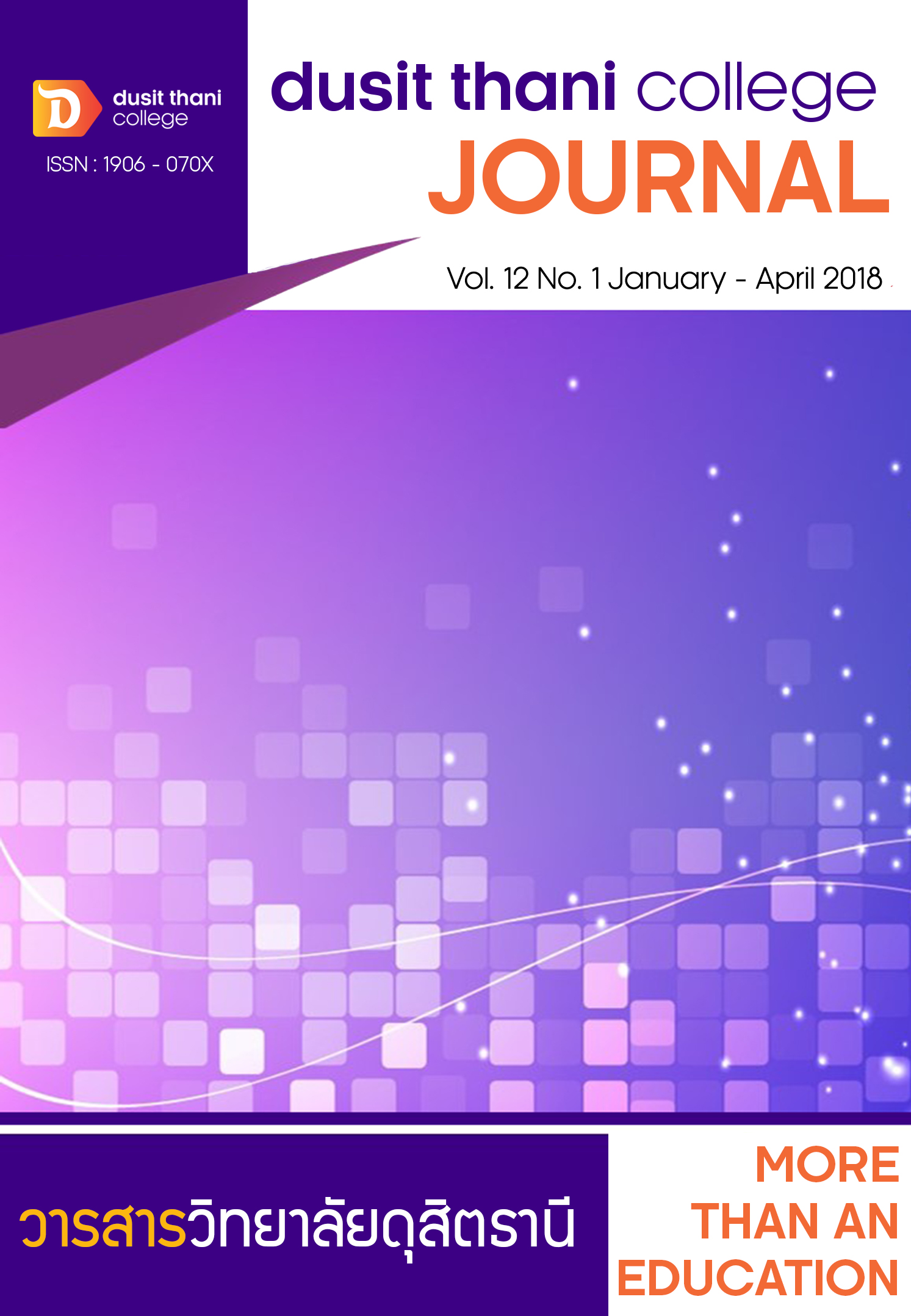A Comparative Study of Hospitality Industry Higher Education: Thailand and Switzerland
Main Article Content
Abstract
This article'saim is to comparative study on the philosophy, vision, core values, and Curriculum of 2higher education institutions in 2 countries which are Ecole Hoteliere de Lausanne's school of hospitality management (EHL) in Switzerland and inDusit Thani College(DTC) in Thailand in order to observe the gap between the education management of the two higher education institution, using the different social orders and beliefs to compare the two institutions
The study result has shown that in Switzerland's society, most laborers are in the hospitality industry due to the lack of natural resources. The comparison between two institutions that focus on hospitality management show that the objective for establishing EHL was to educate and create graduates in the service industry and train them to be ready to work in international service industries as well. In Dusit Thani College, the goal is to create capable graduates to increase the number of people working in the service industry as the number of people were lacking at the time. Graduates have mastered the theory and practice of hospitality management and service. In terms of philosophy, EHL focuses primarily on skills that are needed in the service industry, whereas Dusit Thani College focuses on creating functional graduates for society. In terms of vision, EHL's vision is to respond to the demands of society where there are many citizens in the service industry and it is a major industry that enhances the country's economy. Dusit Thani College has many targets. In term of core value of 2 institutions. There are 4 core comparable value the branch out into 4
dimensions; people oriented, responsibility, academic excellence, and enthusiastic learner. There is incomparable value between EHL and DTC. EHL valued innovation while DTC valued
Tolerance.Regarding the educational course of the two facilities, both institutes recognizes and focuses on fundamental practices of hospitality management in the first year. Then develops and further the students' knowledge on the skills that are required in the work field. After that, the courses improve the knowledge and skills that were taught to the students previously. In their last year that will master the skill and knowledge of hospitality management in the business field. The difference is that the education style of EHL focuses on educating people as a group and having activities that unite groups of people.In addition; practical practices in the service field are constant and held often in every year.
Article Details
Article Screening Policy
- All research and academic articles to be published must be considered and screened by three peer reviews in the relevant field / article.
- All articles, texts, illustrations and tables published in the journal are the personal opinions of the authors. Editors don't always have to agree. And no responsibility whatsoever is the sole responsibility of the author.
- The articles to be published must never be published. Where did you first publish? And not in the consideration of other journals If the audit found that there has been a duplicate publication It is the sole responsibility of the author.
- Any article that the reader sees as being plagiarized or impersonated without reference. Or mislead the work of the author Please let the journal editor know it will be your greatest blessing.
References
Ecole Hoteliere de Lausanne. (2015). Course Catalogue 2015-2016. [Online]. Available: https://www.ehl.edu/file/3386/download
Ecole Hoteliere de Lausanne. (2016). Bachelor of Science in International Hospitality Management. [Online]. Available: https://www.ehl.edu/en/study/bachelor-program/download-brochure
Grant, Amelia W. (2016). Top 50 Hospitality and Hotel Management School in The World 2015. [Online]. Available: https://ceoworld.biz/2016/03/04/top-50-hospitality-hotel-management-schools-world-2015/.
Office of the Education Council. (2006). Switzerland Education System. Bangkok:Pimdee Press.
Office of the Permanent Secretary, Ministry of Tourism & Sports. 2015. Tourism Situation and Trends the Third Quarter. Tourism Economic Review. ฉบับที่ 1 (Jul-Sep 2015


